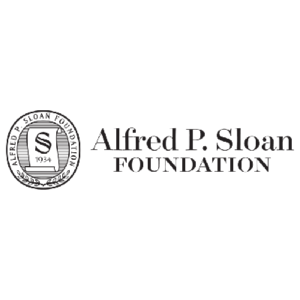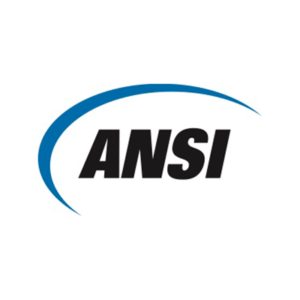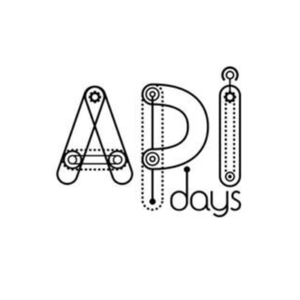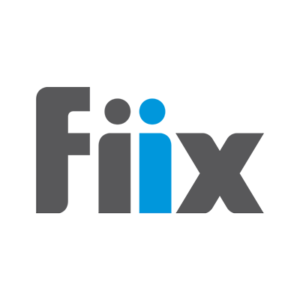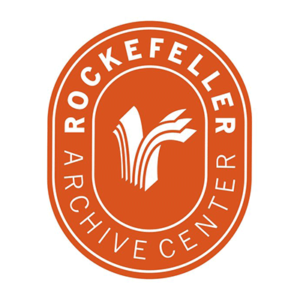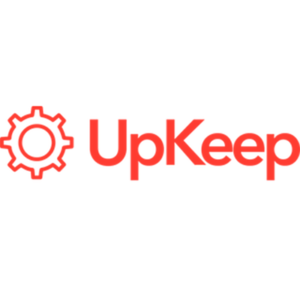Maintainers III: 2019
October 6-9 2019 | Washington, D.C.
Kellogg Conference Hotel, Gallaudet University
The third in a series of conferences that celebrates and unpacks the concepts of maintenance, infrastructure, repair, and the myriad forms of labor and expertise that sustain our human-built world.
Maintainers III Goals
- Bring together practitioners, policy-makers, researchers, and activists who have deep engagements with maintenance
- Develop and sustain communities of practice in specialized areas
- Contribute to a broad public movement around the importance of maintenance and maintainers in modern life
Keynotes
Deb Chachra
Dr. Chachra is Professor of Engineering at the Olin College of Engineering. In addition to working closely with Olin engineering students, she carries out research in the field, and speaks and writes widely on the topic, including writing a regular column, “Reinvention,” in the American Society for Engineering Education’s Prism magazine. She also collaborates with educators worldwide, often through Olin College’s Collaboratory and its programs. Dr. Chachra’s other research interests include gender and engineering, infrastructure, and biological materials (including a type of plastic made by bees). She also works at the intersection of technology and society, and has written commentaries for the Atlantic, the Guardian, the journal Nature, and the comic book Bitch Planet. Prior to joining the faculty of Olin College, Dr. Chachra was a postdoctoral associate at MIT in the Department of Materials Science and Engineering. She joined MIT from the University of Toronto, where she received her master’s degree and Ph.D. in materials science. Dr. Chachra has a bachelor’s degree in engineering science, also from the University of Toronto. She was a recipient of a National Sciences and Engineering Research Council of Canada postdoctoral fellowship and a Medical Research Council of Canada graduate fellowship, as well as numerous other honors for her research and publications. In 2010, she received an NSF CAREER Award in support of her research on engineering education. She is currently writing a book about our shared infrastructure networks, provisionally titled Public Utility, due out with Riverhead Books in spring 2021.
Taeyoon Choi
Taeyoon Choi is an artist, educator, and activist based in New York and Seoul. His art practice involves performance, electronics, drawings, and installations that form the basis for storytelling in public spaces. He has published artists’ books, including ‘Urban Programming 101’ and ‘Anti-Manifesto.’ Choi’s solo exhibitions include Speakers Corners, Eyebeam Art and Technology Center, New York (2012); My friends, there is no friend, Spanien 19C, Aarhus (2011); and When Technology Fails, Reality Reveals, Art Space Hue, Seoul (2007). His projects were presented at the Shanghai Biennale, Shanghai (2012) and Whitney Museum of American Art, New York (2015). Choi was an artist in residence at the Lower Manhattan Cultural Council’s Workspace, New York (2014), The Frank-Ratchye Studio for Creative Inquiry at Carnegie Mellon University, Pittsburgh (2014) and at Art Center Nabi, Seoul (2006). He received commissions from Art +Technology Lab, Los Angeles County Museum of Art, LA (2014) and SeMA Biennale Mediacity Seoul (2016). He curated Resistance and Resilience at Usdan Gallery, Bennington College, Vermont (2012) and directed Making Lab at Anyang Public Art Project, Anyang (2013). Choi holds a B.F.A. from the School of the Art Institute of Chicago and a M.S. from the Korea Advanced Institute of Science and Technology. He teaches at the Interactive Telecommunications Program in the Tisch School of the Arts, New York University. Choi co-founded the School for Poetic Computation where he continues to organize sessions and teach classes on electronics, drawings, and social practice. Recently, he’s been focusing on unlearning the wall of disability and normalcy, and enhancing accessibility and inclusion within art and technology.
Cori Kresge
Cori Kresge is a NYC based dancer, collaborator, writer, and teacher. Kresge graduated from SUNY Purchase with a BFA in dance and the Dean’s Award. She was a member of the Sri Chinmoy Meditation Center and International Vocal Ensemble. Kresge has been a member of the Merce Cunningham Repertory Understudy Group, functioning as a living archive for Cunningham works from the 60’s, 70’s, and 80’s. In 2016 Kresge staged Cunningham’s Field Dances, an improvisational score, on students of CNDC, Angers, France. She has also been a member of José Navas/Compagnie Flak, and Stephen Petronio Company. Kresge currently collaborates and performs with various artists including Rashaun Mitchell+Silas Riener, Liz Magic Laser, Rebecca Lazier, Xavier Cha, Esmé Boyce, Ellen Cornfield, Sarah Skaggs, Bill Young, Wendy Osserman, Sally Silvers, The School for Poetic Computation, and film makers Alla Kovgan, Zuzka Kurtz, and Charles Atlas. She has taught technique and improvisation at NYU Tisch School of the Arts, Bard College, Dickinson College, Barnard College, Princeton University, the Dalton School, and other institutions. Kresge also teaches the Little Creators preschool program at Church Street School for Music and Art in NYC. She is currently studying Zero Balancing, a therapeutic bodywork.
Melissa Gregg
Melissa Gregg is a writer, ethnographer and specialist commentator on the future of work and technology. She is the author of several books, including Work’s Intimacy (2011), The Affect Theory Reader (2010), and Counterproductive: Time Management in the Knowledge Economy (2018). After a career in academia, Melissa joined Intel in 2013 to co-direct a new industry-academic partnership in social computing. She is now Senior Principal Engineer and Research Director in Intel’s Client Computing Division. Her research guides investments and user experience requirements across a range of platforms, from commercial PCs to the ambient and intelligent laptops of the future. Melissa’s research on independent professionals in Asia, Europe, the US and Australia has been critical for Intel’s future office vision, making workplace transformation attentive to the needs of the growing gig economy. As co-chair of Intel’s Out and Ally Leadership Council, Melissa is also actively involved in diversity and inclusion best practice at strategic level.
Charles Marohn
Charles Marohn is the Founder and President of Strong Towns. He’s a Professional Engineer (PE) licensed in the State of Minnesota and a member of the American Institute of Certified Planners (AICP). Marohn has a bachelor’s degree in Civil Engineering from the University of Minnesota’s Institute of Technology and a Master of Urban and Regional Planning degree from the University of Minnesota’s Humphrey Institute. Marohn is the lead author of Thoughts on Building Strong Towns — Volume 1, Volume 2 and Volume 3 — as well as the author of A World Class Transportation System. He hosts the Strong Towns Podcast and is a primary writer for Strong Towns’ web content. He has presented Strong Towns concepts in hundreds of cities and towns across North America and in 2017 was named one of the 10 Most Influential Urbanists of all time by Planetizen.
Illustrated Documentation
For Maintainers III Bernardo Robles Hidalgo and Koen Berghmans, creators of MAMA, propose to visually document the discussions and activities of the conference and make a shared story of it. Through their running research, Bernardo and Koen understand how documentation is a maintenance practice in itself and consider their proposal to be a critical approach to the theme of Information Maintenance that will serve the further development of The Maintainers.
Examples of Bernardo and Koen’s illustrated documentations can be found here (right and below) and on the the MAMA website. As MIII-specific illustrations are created, they will be shared on The Maintainers III website.
Since the very beginning of their MAMA project, Bernardo and Koen have documented their research by making line drawings that they combine with small captions of text. They develop their practice through storytelling. Today they have created a wide collection of items that they present as a manual of maintenance on their website. MAMA is a developing spatial practice that takes a critical look at “work” and our relationship with the built environment by exploring maintenance as craft. MAMA defends the notion of maintenance as a legitimate subject within architecture itself (a part of the designed and built environment that transforms it radically) and not merely a by-product. MAMA believes it is fundamental to question what we maintain when we practice maintenance as a research method. (info(at)mama(dot)brussels)
Koen Berghmans (1983) studied architecture. He has been assisting performing artists and is engaging in different causes, among which POP (Potential Office Project), that questions collaboration beyond the limits of disciplines, social occupations and precarity. In 2013 he held his retrospective exhibition at home (Brussels). He met Bernardo within the collective of Rotor and they lived together within the housing community of Woningen 123 Logements.
Bernardo Robles Hidalgo (1984) studied architecture and project management for construction. He is a collaborator of the organisation Toestand as a project assistant, analyzing the uses and redevelopment of a public space in Brussels during its temporary occupation in anticipation of the future project. He is a painter and illustrator; his work has been exhibited at the RAA (Royal Academy of Arts, London), WSC (Watercolor Society Competition, London) and Het Nieuwe Instituut (Rotterdam) amongst others. He met Koen within the collective of Rotor and they lived together within the housing community of Woningen 123 Logements.
Maintenance Tracks
Transportation Maintenance:
The Transportation track will push an intellectual and policy agenda for improvement of transportation infrastructures. We are interested in the perspectives of scholars, workers, practitioners, policy-makers, activists, enthusiasts, and those who straddle the boundaries among any of these categories. We aim to include all transportation modes, from private car usage to air transportation to public transit and non-motorized modes. We are particularly interested in proposals about the economic burden of transportation, and the inequality of this burden; sustainability and environmental debates including degradation and recycling of transportation infrastructures; standards for safety, accessibility, and reliability; and access to transportation, including questions of interactions between transit and the built environment and exclusion of marginalized groups, including disabled people.
Software Maintenance:
Software is a critical element of our information infrastructure, and maintainers ensure it is reliable and secure. However, we currently lack the tools, business models, and cultural forms of recognition that are needed to sustain the work of software maintainers. This track is a space for maintainers to connect, share experiences, and explore sustainable community, governance practices, standards, and business models.
Information Maintenance:
The information track examines reformatting, repair, mending, migration, stabilization, preservation, teaching and storytelling. All of these activities enable the storage, transmission, discovery, use/reuse and reception of information in service of sense-making. We take a broad view of both maintenance and information, and are interested in the perspectives of practitioners as well as theorists of information maintenance. We encourage proposal submissions from librarians, archivists, and records managers; information architects and knowledge managers; people working in information research and policy; UX/UI designers; standards developers and implementors; oral historians and storytellers; and scholars and educators who address the conference themes of practice, policy and care.
General Maintenance:
This track carries the spirit of the first two Maintainers conferences, which were open to any topics. In this track we are eager to feature collaborations across sectors and industries; initiatives that apply insights from research toward practical problems; practices that revise or update theoretical understandings; reflections from the personal experiences of maintainers; and discussions about maintainers in the workforce—those people who do foundational work for our society, yet are not recognized with adequate pay or social status. Preference will be given to proposals that highlight their contributions to the conference themes of practice, policy, and care.
Online Proceedings
General Track
- Brandon Benevento
“Representing Maintenance: Upkeep as Critical Reading and Writing Practice” (Paper) - Ciaran Trace
“Delayed While Pending Some Action: The Information Backlog as Deferred Maintenance” (Paper) - Charles L. Marohn
“Strong America” (Presentation) - Ellan F. Spero and Devon Olson
“Making do’ to sewing-up protest: a hands-on mending guide” (Workshop Pamphlet) - Jilly Traganou
“Maintenance in Autonomy: Christiania’s Self-Managed Infrastructures” (Paper) - Jonathan Coopersmith
“Maintaining: The Challenge” (Paper) - Julie Hochgesang and Emily Shaw
“Maintaining The Stories of The Deaf Communities at Gallaudet” (Powerpoint) - Justin Shapiro
(Paper) - Keojin Jin
“Extending the Life of Cities” (Paper) - Matthew Battles
“The Careful Archipelago: Performing Maintenance in the Penguin Exhibit” (Paper)
Information Track
- Ciaran B. Trace
“Delayed while Pending Some Action: The Information Backlog as Deferred Maintenance” (Paper) - Chad Weinard
“Data as Medium” (Paper) - Este Pope
“Shutting it down: questioning maintenance of institutional repositories” (Paper) - Greg Bloom
“Averting tragedy of the community resource directory anti-commons: A practical approach to open data infrastructure for health, human, and social services” (Paper) - Kate Adler
“Mutual Aid and The Library” (Paper) - Kate Dohe, Erin Pappas and Celia Emmelhainz
“Delay, Distract, Defer: The Saboteur in the Academic Library” (Presentation) (Paper) - Ruth Kitchin Tillman
“Maintenance, Labor, and the ‘Classic Catalog’” (Paper)
Transportation Track
- Amanda McMillan Lequieu
“Transportation infrastructure decline as lived metaphor in the American Rust Belt” (Paper) - Jessica Ivette Sevilla Ruiz Esparza, Alisa Slaughter, Benjamin Lachelt
“Power, place, and trees: urban maintenance practices in San Bernardino and Mexicali” (Paper) - John Laurence Busch
“Steaming Quid Pro Quo: Early Waterway Maintenance at the Dawn of the First High Technology” (Paper) - Kevin Rogan
“Care against growth: Making the ephemeral physical in Toronto’s smart city” (Paper)
Software Track
- Michael Scroggins and Bernie Boscoe
“Maintaining FITS! Some Lessons from (and Perils of) Successful Long-term Software Maintenance” (Paper)
Sponsors
Thanks to our sponsors!
Planning Committee
MIII programming, logistics, fundraising and overall conference experience are lead by a group of fellow maintainers.
Raquel Velho, Transportation Track Co-Chair
Raquel Velho is assistant professor at the department of Science & Technology Studies at Rensselaer Polytechnic Institute. She is a sociologist of technology, and works at the intersection of infrastructure studies and disability studies, often informed by Latin American approaches to the field of STS more broadly. Her primary research has focused on issues of transport accessibility for disabled people, researching how users’ voices are (or aren’t) included in the process of technological and infrastructural development. She is interested in what maintenance and innovation look like within marginalized communities, and how they impact the shape and direction of infrastructures. As co-chair of the transportation track, Raquel hopes that she can trouble the innovation/maintenance divide in ways that reflect the practices of everyday users.
Carole Voulgaris, Transportation Track Co-Chair
Carole Voulgaris is assistant professor at the department of Civil and Environmental Engineering at California Polytechnic State University. Her research interests include travel behavior, alternative modes of transportation and transportation finance. She teaches courses in Transportation System Planning, Sustainable Mobility, and Public Transportation. Carole is Advisor to the Institute of Transportation Engineers. As co-chair of the transportation track, she is interested in facilitating discussions around maintenance of critical transportation infrastructure.
Tabitha Decker, Transportation Track Co-Chair
Tabitha is the Deputy Executive Director at TransitCenter, a foundation that works nationally to improve transit in ways that make cities more just, and environmentally and economically sustainable. Tabitha is one of the leaders of the Bus Turnaround Campaign, a coalition effort that successfully advocated for better bus service in NYC, securing commitments from the transit authority and mayor to radically improve bus speeds and reliability. Tabitha’s advocacy for more equitable transit is underpinned by more than a decade of research in cities around the world, including a dissertation about the design and creation of Dubai’s metro and a year-long ethnographic study of the experiences of women taxi drivers around the world. As co-chair of the transportation track, she is focused on incorporating the perspectives of advocates, practitioners, and those who are most affected by our uneven and ill-maintained transportation system.
Mehdi Medjaoui, Software Track Co-Chair, Steering Committee
Mehdi is the CEO of Progressive Identity, a company enabling users to get back their data from digital platforms and redistribute them to others with the identity they want : their alias(es). In 2012, Mehdi has created APIdays conferences, the main series of Conference on APIs (still running in 2019 with 9 events) and has been the co-founder of OAuth.io, a developer backend to handle application authorizations (acquired in 2017 by Xenon Ventures). Since 2015, Mehdi publishes every year the Banking APIs : State of the market report, and just published his last book Continuous API management with its fellow API academy members, published by O’Reilly. In 2019, Mehdi has been selected as Expert 2020 by the European Commission to lead the study on APIs for Digital Governments and has been invited as Professor at HEC MBA to lead a mandatory class on the Zero to One to Deeptechs. In 2018 Mehdi has created Les mainteneurs, a non-profit about Maintainers in France and has developed the Maintainers Open Source Licence and is co-organizing FundTheCode.org events.
Don Goodman, Software Track Co-Chair
Don is a philosopher-engineer based in Amsterdam, where he currently holds a position as a developer advocate at GitHub. His focus is on empowering software developers, and especially open-source software maintainers by helping them identify the best tools, and best practices for their craft. In previous lives, Don has worked with startups in such diverse fields as web security, chatbots, streaming media, embedded hardware, the model railroading industry; he also holds a Ph.D. in philosophy from Washington University in St. Louis. Don is also the founder of the DevRel Salon, a European-wide series of events designed to help individuals and companies understand the value of developer relations as a role and career path.
Juliana Castro, Information Track Co-Chair
Juliana Castro is a Colombian, New York-based graphic designer and writer interested in design ethics, open-access, and media theory. Juliana is the Design Associate at Access Now, where she helps a global advocacy team fight towards the respect of human rights online and procure a free and open internet for all. She is the founder of Cita, a independent feminist publisher of free open-access books. Juliana is also a Fulbright scholar and part of the 7th cohort of Mozilla Open Leaders. Before joining Access Now, Juliana worked at the Harvard Open Access Project at the Berkman Klein Center for the Internet & Society at Harvard University. She holds an MFA in Design and a Portfolio in Museum Studies from the University of Texas at Austin. Juliana hopes to bring into discussion the role of interfaces and interaction design in caring for information maintenance.
Hillel Arnold, Information Track Co-Chair
Hillel Arnold is Assistant Director, Head of Digital Programs at the Rockefeller Archive Center where he leads implementation and maintenance of open-source systems and processes facilitating broad and equitable access to and responsible preservation of archival records. He is active in standards making and maintenance bodies, and has served on the Society of American Archivists’ Technical Subcommittee on Describing Archives: A Content Standard (TS-DACS), and Encoded Archival Description Roundtable. Hillel has worked as an archivist at the Tamiment Library/Robert F. Wagner Labor Archives, Foundation for Landscape Studies and the Woody Guthrie Archives. He holds an MA in History from New York University and an MLIS from the Long Island University’s Palmer School. In his role as co-chair of the information track, he works to include the voices of a diverse set of information maintainers in the conference.
Chela Scott Weber, Information Track Co-Chair
Chela Scott Weber currently works as a Senior Program Officer for the OCLC Research Library Partnership, where she builds and maintains relationships, resources, and programs across an international collective of research libraries. She has previously held a number of positions in archives and special collections libraries, including Head of Library and Collections at the California Historical Society, Head of Archival Collections Management for NYU Libraries and Associate Head for Archival Collections at the Tamiment Library & Robert F. Wagner Labor Archives at NYU, Director of Library & Archives at the Brooklyn Historical Society, as well as positions with the Microsoft Archives, New York Transit Museum, and the Benson Ford Research Center at The Henry Ford. She holds an MLIS and certificate of archival administration from Wayne State University, and a BFA from Cornish College of the Arts. In her role as co-chair of the information track, she hopes to encourage a broad array of information maintainers to reflect on their work and encourage a view of information maintenance work as worthy of reflection.
Lee Vinsel, Steering Committee
Lee Vinsel professes Science, Technology, and Society at Virginia Tech. He is the co-founder (with Andy Russell) of The Maintainers, a network of scholars and professionals focused on maintenance, repair, upkeep, and the everyday labor that keeps the world going. Lee is the author of Moving Violations: Automobiles, Experts, and Regulations in the United States (Johns Hopkins University Press, 2019) and articles on the history of technology, standardization, and public policy. As a member of the M3 Steering Committee, Lee focuses on program logistics, and he is also proud to be helping the transportation track leaders in their efforts.
Shannon Mattern, Steering Committee
Shannon Mattern is a Professor at the New School for Social Research. Her writing and teaching focus on archives, libraries, and other media spaces; media infrastructures; spatial epistemologies; and mediated sensation and exhibition. She is the author of The New Downtown Library: Designing with Communities; Deep Mapping the Media City; and Code and Clay, Data and Dirt, all published by University of Minnesota Press. She contributes a regular long-form column about urban data and mediated infrastructures to Places Journal, and she regularly collaborates on public design and interactive projects and exhibitions. You can find her at wordsinspace.net.
Andrew Russell, Steering Committee
Andrew L. Russell is Professor of History and Dean of the College of Arts & Sciences at SUNY Polytechnic Institute in Utica and Albany, New York. He is the co-founder (with Lee Vinsel) of The Maintainers, a network of scholars and professionals focused on maintenance, repair, upkeep, and the everyday labor that keeps the world going. Russell is the author of Open Standards and the Digital Age: History, Ideology, and Networks (Cambridge University Press, 2014), co-editor of Ada’s Legacy: Cultures of Computing from the Victorian to the Digital Age (Morgan & Claypool, 2015), and has published essays on Internet history, modular design, standardization in the United States and Europe, and the monopoly Bell System. As a member of the M3 Steering Committee, Andy works on program logistics, content, and bringing together people from diverse backgrounds who are passionate about maintenance
Jessica Meyerson, Steering Committee
Jessica is Research Program Officer for Educopia Institute and Co-PI on the Sloan-funded Maintainers Community Framework. Jessica works across institutions, communities, and sectors to support applied research that advances digital practice. She currently participates in several projects aimed at broadening participation in software preservation and exploring curation approaches for software-dependent objects including EaaSI and FCoP. As a member of the Maintainers III Steering Committee, Jessica helps to oversee program logistics, timelines, communications, and overall attendee experience.
